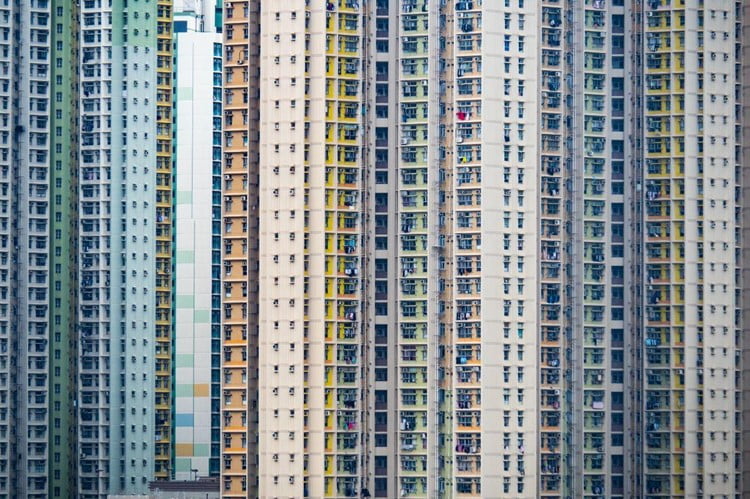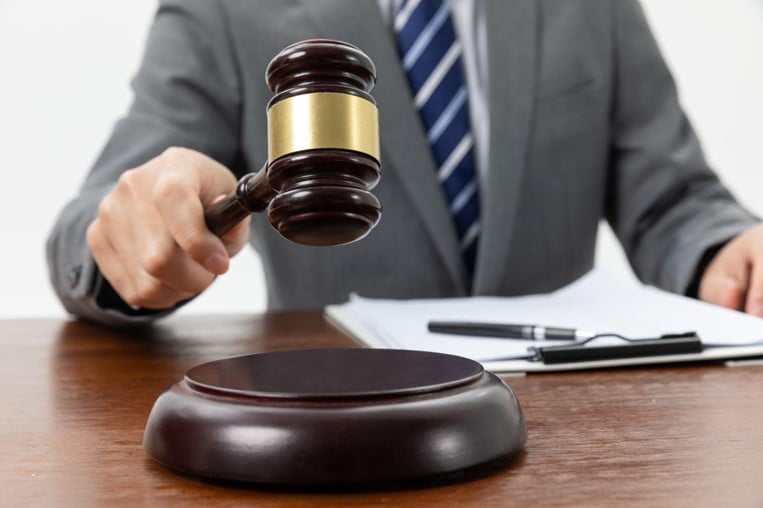
After a divorce, you’ll probably wonder what will happen to your HDB flat. This situation can end in two ways. Ideally, both parties agree on the fate of the property. But if they do not reach an agreement, the Court will have to take on the case and decide on the outcome.
In this guide, you’ll learn more about rights to ownership of a property after a marriage has legally ended. HDB housing will most likely be the most critical asset that a couple needs to divide after separation.
What Will Happen To An HDB Flat After A Divorce?
If the couple contests the divorce, the parties cannot come to final terms and will need the Court to intervene and make the final decision. Therefore, they each have separate claims about their assets. The Court decides which parties keep the property and under what grounds to finalise a claim. On the contrary, an uncontested divorce will not need a Court to decide because the couple would have decided and agreed between themselves how best to equitably deal with the HDB flat to their mutual satisfaction.
If Parties Agree On What Happens To The Flat After Divorcing
The ideal situation is that both parties agree on what will happen to the flat. Provided that the couple agree on the terms, one option is for one of them to transfer his or her share of the HDB flat to the other party.. Or, they may put the flat up for sale and divide the proceeds accordingly.
After the parties reach an agreement, they can document the terms and include them as part of their divorce paperwork.
If The Parties Leave The Fate Of The HDB To The Courts
Without reaching an agreement on the HDB, both parties will contest their position. The Court will require them to submit their respective positions on the HDB flat. Afterwhich, they will need to attend an ancillary hearing. During this hearing, each party will be heard by the courts separately. This process determines the admissibility of the evidence.
In this hearing, the Court decides if the flat is considered a “matrimonial asset” in this hearing. They will also determine whether the flat is part of the pool of assets for division. The Court will assess each party’s position and hand out a just and fair decision for all.
How Does The Court Decide On The Ownership Of An HDB Flat After A Divorce?

The Court will undertake several steps in determining the ownership of an HDB flat before it hands down its final judgement.
- Step 1: The Court will decide if the HDB flat falls under matrimonial assets
- Step 2: If the HDB is a matrimonial asset, it’s included in the matrimonial pool. This group of assets will be divided between the parties.
- Step 3: The Court does not consider the HDB a matrimonial asset.
Step 1: The Court Will Decide If The HDB Flat Falls Under “Matrimonial Assets”
The Court will use Section 112(10) of the Women’s Charter to determine if the HDB flat falls under matrimonial assets. According to this section, “matrimonial assets” may refer to:
- Assets obtained by one or both of the parties during the marriage
- Assets used by one or both of the parties (or their children)
- Assets obtained before the marriage but have improved during the relationship.
The Court excludes assets that have been obtained as presents or through inheritance.
The Court will most likely be a matrimonial asset that will be divided upon divorce. However, one spouse cannot simply claim their right of share in an HDB flat owned by another spouse, simply by virtue of their marriage. Said spouse will only have an interest in the flat if it is determined to be a matrimonial asset, as per the Women’s Charter.
Step 2: If The HDB Is A Matrimonial Asset, It’s Included In The Matrimonial Pool
If the Court defines the HDB as part of the matrimonial pool, they will begin dividing the assets based on several factors:
- The extent of contributions made by each party
- Children’s needs in the marriage
- Agreements between the parties on the distribution of the assets in divorce
- Financial self-sufficiency of the parties after the divorce process
To come up with a just decision, the Court will consider all of the factors, including indirect contributions such as: home renovations and other improvements that benefit the parties (and the children) during the marriage.
As each case is different, the Court will weigh the factors differently. The Court does not assume the position that the parties have contributed equally during the marriage.
For example, if one spouse has shown total failure in carrying out their obligations to the family, the other party will receive the lion’s share of the assets. The case could also be that the other party went above and beyond to contribute to the family. They will then receive more in this type of division.
Let’s take a closer look into each factor and the considerations that may help the Court decide who owns the HDB flat after divorce.
The Extent Of Contributions Made By Each Party
In deciding the ownership of the HDB housing after divorce, the Court will weigh out the couple’s contributions throughout their marriage.
Contributions can be categorised into financial (direct) and non-financial (indirect) contributions. An indirect contribution could be renovating the couple’s shared property — i.e. by renovations, repairing, or maintenance).
Indirect contributions could also be:
- Caring for the household
- Caring for a sick/elderly/vulnerable relative
- Assistance in advancing the occupation/business of the other party
- Debts paid by the parties
- Provision of support to members of the household
Children’s Needs In The Marriage
The welfare and needs of the children will also be paramount in the Court’s decision on the HDB flat after a divorce. The Court will decide which party will care for the children or take them under their wing.
For example, if the Court sees that the mother is more capable than the father in caring for the kids, it will be more inclined to grant the flat to the mother. The idea is that the mother will need housing to meet the needs of her kids. The ability to care for the children depends on not just financial capabilities, but also mental, emotional, and physical capacities.
Agreements Between The Parties On The Distribution Of Assets In The Divorce
Some parties may have reached an agreement on several terms before the divorce. The Court will also take these into account. An example is prenuptial agreements, which include:
- Premarital and marital assets
- Work
- Family property
- Property division
- Children from a former marriage, etc.
Financial Self-Sufficiency Of The Parties After Divorce
When dividing the assets, the Court will also consider the parties’ financial capabilities and occupational capacity. Aside from this, debts owed by both parties (mortgages, loans, etc.) will also influence the Court’s decision.
Debts Paid By The parties
The Court will also look into the debts which have been undertaken by both parties for their or their children’s benefit. When determining which of them should get a share of the HDB flat after divorcing, the Court will use a structured approach to examine each partner’s contribution to debt payments for mortgages, auto loans, creditor loans, etc.
Other Factors That May Be Included
As mentioned, each divorce case is different. Other things to note are:
- Any physical and mental disabilities of the parties
- Duration of marriage
- Age of the parties
After deliberating the factors above, the Court decides how much share each party receives after selling their HDB flat. The division of assets is a complicated process, so you can enlist the help of divorce lawyers to provide assistance based on the specifics of your case. The Singapore Family Lawyer also has female divorce lawyers to help you out with your legal concerns.
Step 3: The Court Does Not Consider The HDB Flat A Matrimonial Asset

If the Court does not qualify the HDB flat as a matrimonial asset, it will not be part of the pool and will not be divided amongst the parties.
Keeping Your HDB Flat After Divorce
Understanding the points above, there are scenarios where you are entitled to retain the flat after separation:
- Your spouse has agreed to transfer their interest in the flat to you
- The Court orders your spouse to pass on their interest to you. This situation happens when you and your spouse cannot come to an agreement on what should happen to the property after divorcing.
Take note that you won’t automatically keep the flat to yourself. This is because you will first have to satisfy the conditions of owning the HDB. You will need to fall under the following eligibility conditions:
- Condition 1: You Are The Primary Carer Of Your Children – You will be able to keep the HDB flat if you have care and control over your children.
- Condition 2: The Single Singapore Citizen Scheme Qualifies You To Keep The Flat – Even without children, you may still retain the flat under the Single Singapore Citizen Scheme. Also known as the HDB Single Singapore Citizen Scheme, this allows unmarried citizens 35 years of age and above to purchase a HDB flat on their own.
If you are unable to meet these conditions and eligibility requirements, another person may be cited to retain the flat, provided they are eligible under a different scheme. If you still cannot do so, the Court will order you to dispose of your HDB flat after divorce.
For instance, if the Minimum Occupation Period (MOP) of five (5) years isn’t met, the parties will have to forego the flat to HDB at the prevailing compensation price, subject to the board’s approval. But, if you and your former spouse satisfy the MOP period, you may put the flat up for sale on the open market.
Dividing The Proceeds Of The Flat After A Sale
Once the HDB flat has been sold, distributing its proceeds amongst you and your former spouse follows the above mentioned frameworks (i.e.: through mutual agreement or through division of matrimonial assets by the Court).
In a certain case, a husband contributed around 80% of the purchasing price of the HDB flat, while the wife contributed 20%. However, the disparity in their contributions alone does not mean that the husband will also get 80% of the proceeds of the sale. The Court also considered non-financial contributions the wife had made, such as caring for the family, taking care of the property, etc.
The Court also considered the 18-year length of marriage of the couple, as well as payments the wife had made in purchasing their children’s clothing, furniture, and other items that had benefited the family.
The Court eventually decided that the husband should get the larger share of the proceeds, at 60%, while the wife got 40%.
What Happens To Your HDB Flat After An Annulment Of Marriage
The flat will have to be disposed of if the marriage is void (due to non-consummation) or annulment. An exception is if the parents of either parties were originally listed in the application to purchase the flat. But if their names are not on the application, you will need to give back the flat at the prevailing compensation price, with approval from HDB.
Conclusion On The Ownership Of An HDB Flat After A Divorce
In deciding the fate of your HDB flat after a divorce, you and your former spouse can work on it together and raise the issue in Court. With a prenuptial agreement, both parties can much more easily decide on the share of the property. However, without a prenup, the decision is made much more difficult. The parties might each make claims and positions that favour them after the divorce.
Still at odds with your former spouse on how you should divide the HDB flat after a divorce? Get legal assistance from experienced family lawyers here at the Singapore Family Lawyer. We’re a legal service provider that prioritises your interests above all else. Legal paperwork and Court proceedings can be too daunting, but our legal specialists are ready to help you navigate through them all.
Book a free 30-minute consultation with us now! Let us know your current legal woes, and we’ll be happy to provide you with an initial assessment to get started.
Frequently Asked Questions About The Ownership Of An HDB Flat After A Divorce
Can A Divorced Couple Keep A House In Singapore?
Yes. If the residence is private property and if the divorce was amicable, both parties could come to a mutual understanding to keep the property.
Can You Purchase Or Rent A New HDB Flat After Divorce?
Yes. Divorcees can avail of housing grants or other schemes to help them rent or purchase HDB flats. For example, you may buy a new Build To Order (BTO) flat under the Assistance Scheme for Second-Timers. Or, you may buy a resale flat.
Housing grants are also available at your disposal. If you’re facing financial hardships in buying a new BTO flat under the ASSIST program, or you have failed to qualify for this scheme, there are interim housing options available for you.
Take time to decide on your thoughts and feelings. Then if you’re ready, consult with an experienced divorce lawyer in Singapore to assist you on the steps to take.
Who Keeps The HDB Flat After A Divorce?
As part of the prenup, you can decide with your partner what may happen to your HDB flat after a divorce. Both of you have the freedom to mutually express your needs and expectations for the HDB property after separation.
Can The Court Force Divorced Parties To Sell A House?
Yes. The Court can order a divorced couple to put the matrimonial home up for sale on the market as part of the divorce settlement.